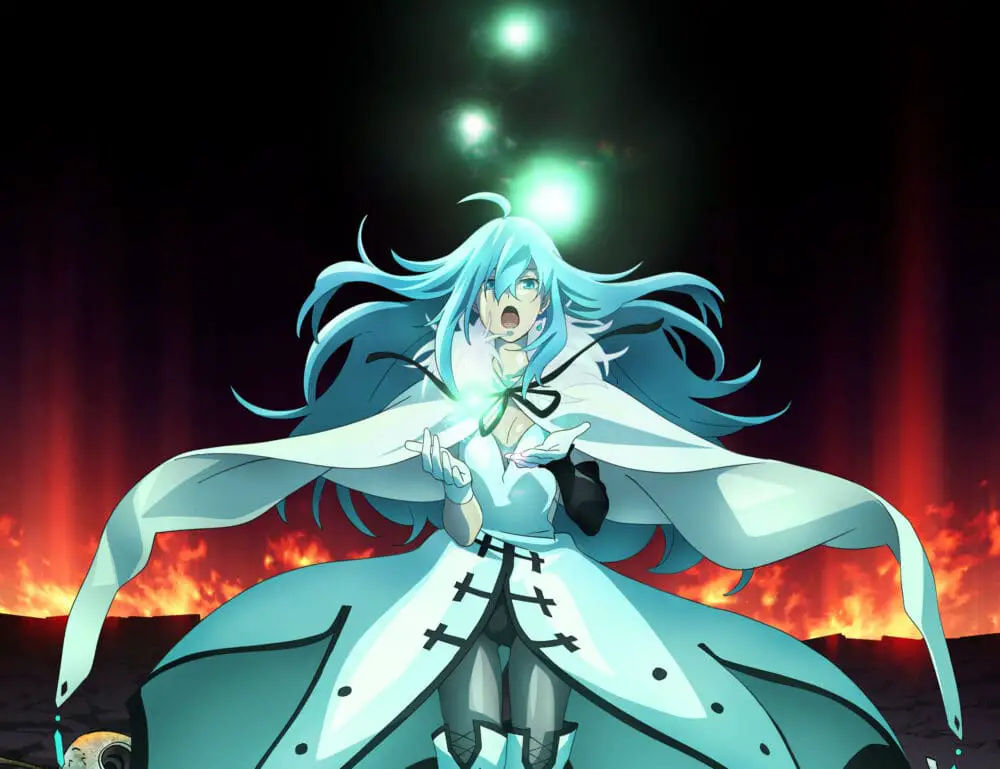Beginning in the near future, humanity has begun to create true AIs and these AIs live and work amongst them. “Vivy” is one of those AIs, created to be a singing entertainer for an amusement park (a “songstress”) and she’s content with her unchanging routine. But then something very un-routine happens, a “virus” enters her system and claims to be a super-advanced AI from the future, sent back in time to enlist her help in changing the present to prevent an AI uprising that will kill all humans. AI can’t lie, and all AI are concerned with the safety of humans to some extent, so Vivy has no choice but to go along with this double-life and participate in the most major, AI-related events for the next hundred years and to see if the Singularity Project was enough to save humanity after all.
Vivy Prototype is an original light novel series but, as contradictory as it sounds, Vivy: Fluorite Eye’s Song is also a wholly original TV anime. Neither is an adaption of the other strictly speaking as Tappei Nagatsuki, the writer of Re:Zero, and Eiji Umehara, the writer of Chaos;Child, teamed up to write this series (alternating volumes) because the idea was that it might be easier to draft an original anime this way instead of the usual methods (somehow). These two volumes correspond to the first three arcs of the anime and while the overall events are the same, small details are different from the get-go and if I had to pick one version over the other it would definitely be the anime.
I’ve noticed over the years that I’m prone to preferring the first medium I saw a story in over all others (which is usually the source material anyway) which probably played a role in why I enjoyed the anime more than these novels but I also just think that the anime staff made smarter choices when it came to Vivy’s characterization and in the world building. In Fluorite Eye’s Vivy starts out as an AI who was an important step in AI development but still only manages to attract a modest crowd at a smaller stage at the theme park where she works, so even if her vocal performance is amazing she’s still just a machine doing a job and that kind of novelty wears off quickly. Her popularity does grow over the course of the series to an extent and that could even be interpreted that, even though she’s not human, the experiences she’s had have influenced her and given her a more complex view of the world that she’s able to channel into her singing and helps to back up her character growth.
Click here to read the full article
Want a Copy of Your Own?
Get yours right here and help support us and a local bookstore of your choice.



